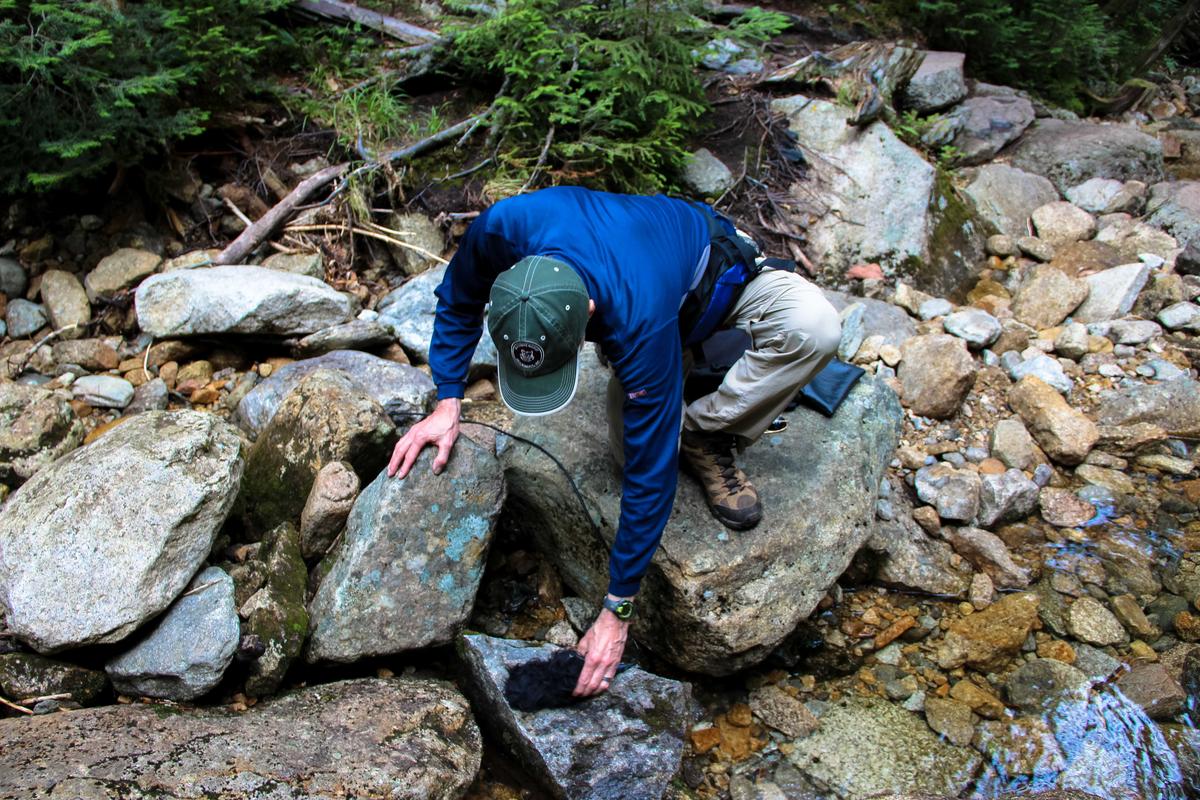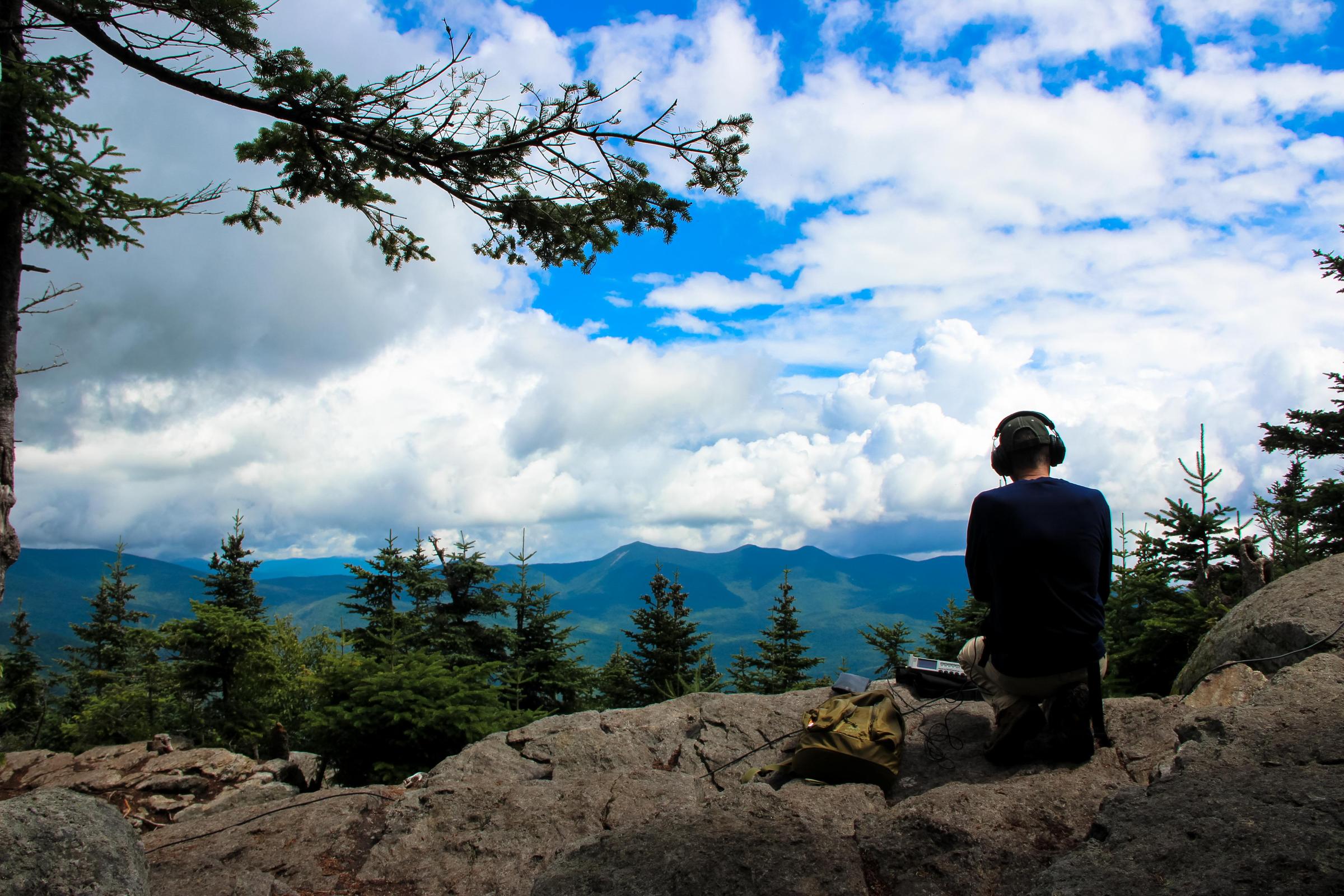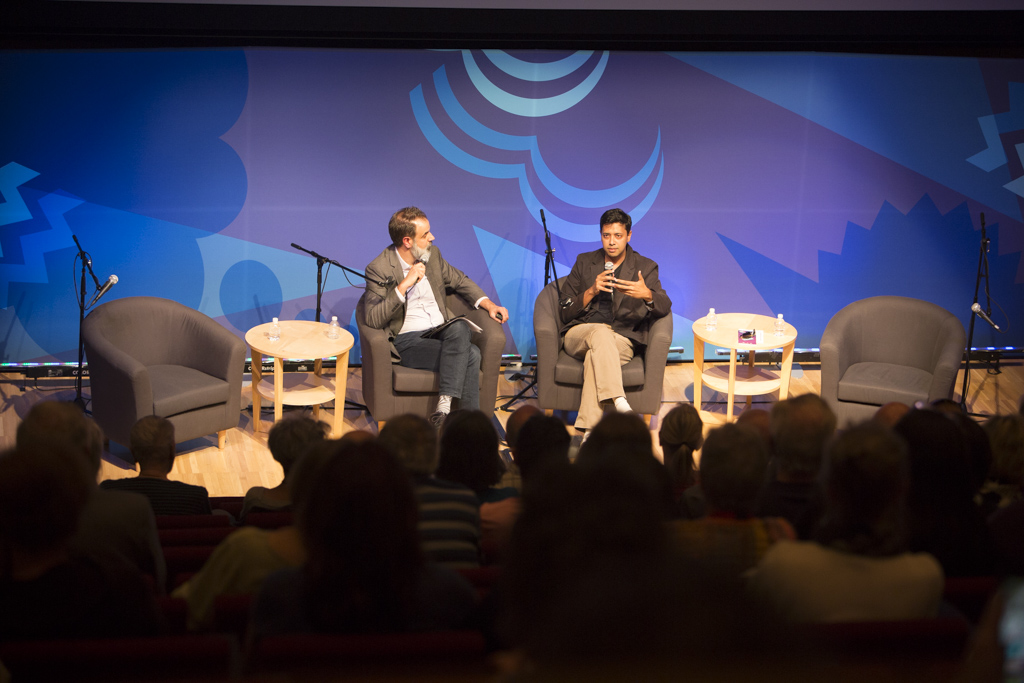Episode 100

This week on a special 100th episode of NEXT: we hear highlights of a live panel discussion about the effects of immigration on the economy. Plus, we listen back to some of our favorite reports from the past 100 episodes, including how one actress perfected a Boston-flavored accent, why a local chef cooks with invasive species, and what a musician is doing to make a “sound map” of the White Mountains. Finally, we revisit a conversation with a composer whose music is inspired by the New England landscape. It’s NEXT.
Is Immigration Good For The Economy?
One of the biggest political debates about immigration is that it hurts the chances of American-born workers to succeed and it damages the U.S. economy. But in New England, where the population is rapidly aging and the young replacement workers needed to sustain the workforce are leaving, immigration just might be the answer.
On this special segment of NEXT, we speak with experts about how immigration is affecting the local and national economy through data, statistics, and the human stories behind them. We speak with Ahmed Mushfiq Mobarak, Professor of Economics at Yale University, Shannon Dooling, a reporter for the NENC and WBUR, and Will Kneerim, the Director of Employment and Education Services at IRIS.
To explore the data and personal stories we discussed in this panel, read more here. To read more stories about how New England is adapting to changing demographics, visit our Facing Change page.
Exploring A “Boston-Flavored” Accent
The Netflix prison drama Orange is the New Black features a woman with a “Boston-flavored” accent. In fact, this character’s way of talking is a little more complicated than that, and so is her story. Developing that sound brought actress Yael Stone to Boston. There, she met up with WBUR’s Sarah Rose Brenner.
Eating Invasive Species
Summertime in New England means seafood — and lots of it: lobsters, clams, scallops, and for as long as it lasts, cod. Some fish, like cod, are considered “vulnerable” in New England waters. Others, like herring, are in short supply.
You might not think about herring as a fish you would eat, but it’s used as bait for those tasty lobsters, and that has lobstermen worried. Depleted stocks, warming waters, pollution, nitrogen runoff — these are all concerns that have us changing the way we think about what we eat from our waters. That’s why some chefs are turning to new species. Emily Corwin takes us to a restaurant where invasive green crabs are on the menu.
Food like that is also on the menu at Miya’s, a restaurant in New Haven, Connecticut. It’s known as the birthplace of sustainable sushi. What does that mean? Well, you can’t find the things you’re used to seeing on the menu of the sushi place down the street. Food like farmed shrimp or salmon, or bluefin tuna, or eel, are all replaced by “unwanted” fish like carp, and lots of plants.
And some of them come from Bun Lai’s front yard. We spent about 20 minutes stooped over on a sweltering day filling a basket with wild mustards, mugwort, and dandelion weeds. Bun Lai called it “lunch.”
A “Sound Map” Of The White Mountains

Wilkes records with two mics – he sets one here on a rock, and one higher up the brook. Photo by Sean Hurley for NHPR
Steve Wilkes is a drumming professor at Berklee College of Music in Boston. He’s also a former member of Blue Man Group and has toured the world with The Empire Brass Quintet. But for his latest gig, Wilkes won’t be making music. Instead, he’s recording the sounds of the forest and compiling the first ever audio map of the White Mountains.
New Hampshire Public Radio North Country reporter Sean Hurley joined Wilkes on a sound-gathering trip last summer. You can listen to all of Wilkes’ recordings and track his progress at heartheforest.org.
A Composer Writes The Soundtrack Of New England
Ben Cosgrove writes and performs instrumental compositions inspired by landscapes. A New Hampshire native, he’s held residencies and fellowships at Acadia National Park, Middlebury College, Harvard University, the Vermont Studio Center, and White Mountain National Forest; and recorded three studio albums.
Cosgrove joined us in the studio to talk about his process and played us some musical selections, including a never-before-heard track from his upcoming New England Trail-inspired album. You can see him perform at venues around the region.
Thank You
Thank you for your support over the course of our past 100 episodes, whether you’re listening on the Maine seacoast, a rolling highway in rural Vermont, a coffee shop in Concord or a traffic jam in Hartford. We always want to hear from you: what pressing issues do you see facing New England? Send critiques, suggestions, questions, and ideas to next@wnpr.org. Follow us on Facebook and Twitter.
Photo at the top of the page: Steve Wilkes recording on the summit of Mt. Tecumseh in the White Mountain National Forest. Photo by Sean Hurley for NHPR
About NEXT
NEXT is produced at Connecticut Public Radio
Host: John Dankosky
Produced with help this week from Lily Tyson and Ali Oshinskie
Digital Producer: Carlos Mejia
Executive Producer: Catie Talarski
Contributors to this episode: Sarah Rose Brenner, Emily Corwin, Andrea Muraskin, Sean Hurley
Music: Todd Merrell, “New England” by Goodnight Blue Moon, “Hayiti Inta Reprise” by Natacha Atlas, “Shuffle” by Annie Eve, “Apogee” by Tycho, Ben Cosgrove



